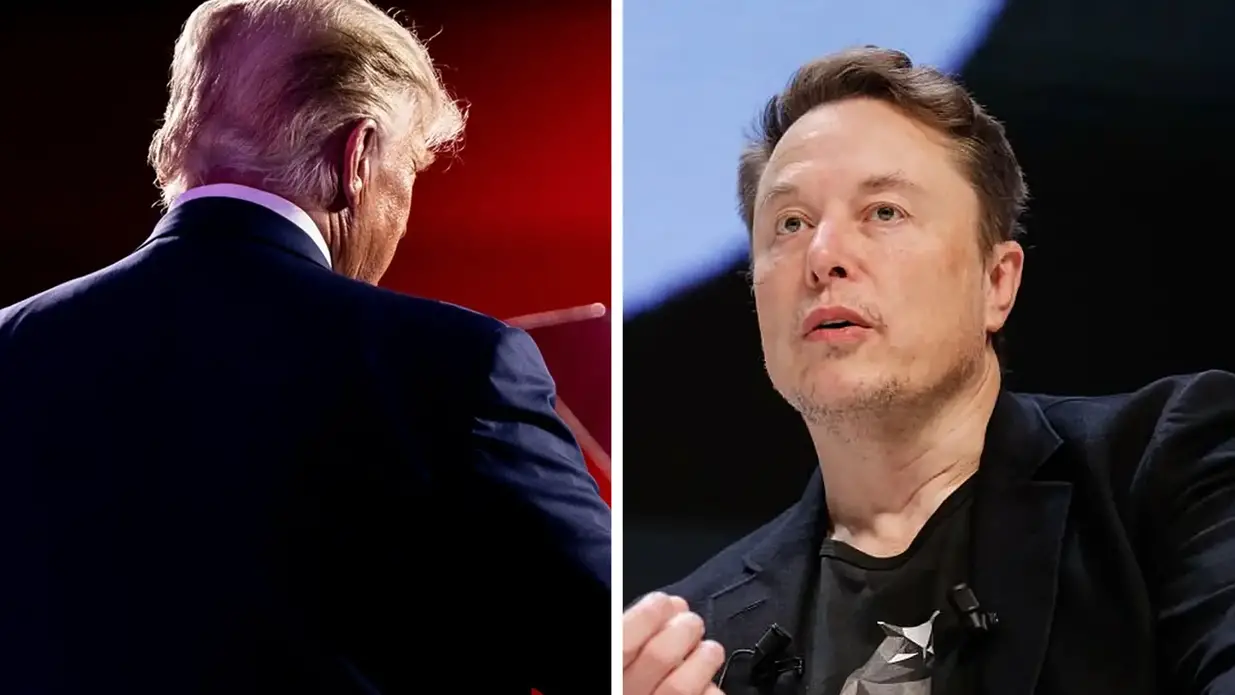Elon Musk, the billionaire entrepreneur known for his roles at Tesla, SpaceX, and X (formerly Twitter), has once again caught public attention with his recent political stance. In a bold statement, Musk expressed his endorsement for a “red wave” in the political landscape, sparking widespread debate and speculation about his intentions and the impact of his influence. Musk’s declaration has fueled discussions on social media, with people questioning what this shift could mean for the tech industry, economic policies, and the future of American governance.

Musk’s Political Leanings: A Shift to the Right?
Elon Musk has always maintained a level of unpredictability, not only in his business ventures but also in his political views. Historically, he has described himself as a “moderate” and even an independent thinker, often distancing himself from the conventional party lines. However, in recent years, Musk’s positions have shifted, reflecting an increasingly conservative approach to topics like free speech, government intervention, and environmental policies. His recent endorsement of a “red wave” aligns him more closely with the Republican party, a significant move that may have profound implications on his companies and his followers.
Musk’s call for a red wave is seen by many as a response to the current political environment, which he believes has become overly regulatory and stifling for innovation and business. He has expressed concerns about policies he views as counterproductive to economic growth and technological advancement, especially regarding renewable energy, space exploration, and artificial intelligence—all areas critical to Musk’s vision for the future.
The Reasons Behind Musk’s Endorsement
Musk’s endorsement for a red wave seems rooted in his discontent with the current administration’s policies and an increasing desire for less governmental interference in business. Here are some potential reasons behind his stance:
- Economic Policies and Business Regulations
Musk has been vocal about his frustration with regulatory obstacles he faces in the U.S. and internationally. From space exploration restrictions to automotive manufacturing regulations, he sees government oversight as a significant barrier to progress. The entrepreneur believes that a Republican-led government could reduce these restrictions, fostering a more business-friendly environment that promotes innovation and economic growth. - Energy and Environmental Policies
While Musk is a champion of renewable energy, he has voiced concerns about how current policies impact the energy sector. With Tesla leading the electric vehicle market, he wants policies that encourage sustainable energy solutions but without excessive regulation or reliance on government subsidies. Musk has previously criticized subsidies for electric vehicles in some contexts, advocating instead for natural market growth without heavy-handed government involvement. - Free Speech and Social Media
Musk’s acquisition of Twitter, now rebranded as X, highlighted his stance on free speech. He has repeatedly criticized what he views as censorship on major social media platforms, claiming that freedom of expression should be protected. Under Republican leadership, he hopes for policies that prioritize First Amendment rights and limit restrictions on digital platforms. His endorsement of a red wave may also reflect his belief in a government that allows for more open dialogue, especially in the tech sphere. - AI and Technological Development
Musk is highly invested in artificial intelligence through projects at Tesla, SpaceX, and Neuralink. He has advocated for responsible AI development but also voiced fears about government overreach in regulating AI innovation. A Republican-led government may align with Musk’s vision for a regulatory approach that allows the industry to grow without stifling creativity and experimentation.
The Potential Impact of Musk’s Influence
With over a hundred million followers on X and significant sway across different industries, Musk’s political endorsement can have a profound impact on public opinion. His supporters view him not just as a business icon but as a thought leader. Many are receptive to his views, especially on issues like free speech and innovation.
Musk’s endorsement of a red wave could drive public discourse, potentially encouraging young voters and tech enthusiasts to consider conservative candidates. His influence may also lead to a broader shift in the tech industry, where his peers and followers could become more vocal in their political leanings, adding momentum to calls for change.
Reactions and Backlash
Unsurprisingly, Musk’s endorsement has not come without controversy. Critics argue that Musk’s call for a red wave is driven by self-interest, focusing on policies that benefit his companies rather than the broader population. Detractors claim that his positions on government intervention are hypocritical, as his businesses have benefited from subsidies and government contracts in the past.
Moreover, Musk’s stance has sparked backlash from progressive voices who fear a rollback of climate policies and social protections. For those who champion government initiatives in environmental justice, Musk’s endorsement of a red wave raises concerns about the future of climate action, affordable energy, and tech industry accountability.
The Bigger Picture: What Does This Mean for the Future?
Elon Musk’s statement, “We need a red wave right now,” underscores the ongoing debate about the role of government in innovation, technology, and business. As one of the most influential voices in tech, Musk’s endorsement signals a growing sentiment within Silicon Valley and the tech industry at large. The support for conservative economic policies, deregulation, and free speech rights resonates with many tech entrepreneurs who feel constrained by the current political climate.
While the ultimate effect of Musk’s endorsement remains to be seen, it’s clear that his stance adds fuel to an already polarized political environment. If more tech leaders follow Musk’s lead, we could see a significant shift in how the industry engages with politics, potentially shaping policies around technology, energy, and freedom of speech.
Final Thoughts
Elon Musk’s endorsement of a red wave has sparked a fresh wave of discussions about the tech industry’s role in politics. His support for a shift in governance reflects his vision of a society that values innovation, limits regulation, and prioritizes free expression. As Musk’s influence extends beyond business, his political statements hold weight and may inspire others to reconsider their views.
Leave a Reply